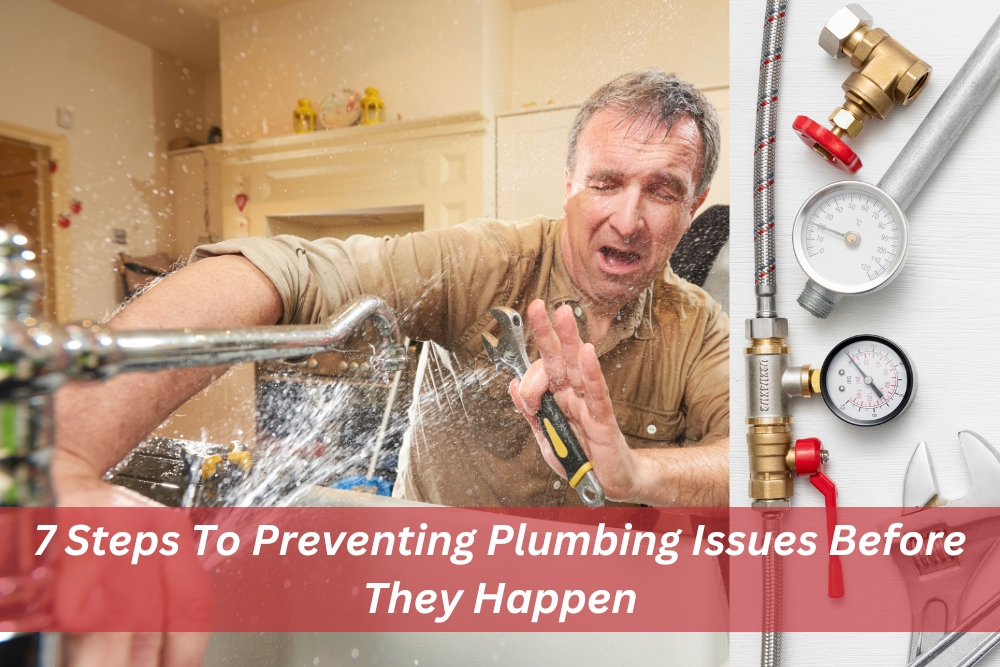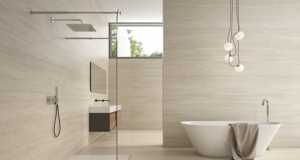

Have you ever experienced a plumbing emergency that left you scrambling to find a solution? The truth is, plumbing problems can be a real headache. But what if you could prevent these issues from happening in the first place?
Whether it’s a leaky faucet or a clogged drain, plumbing problems are inevitable. However, it’s possible to reduce the likelihood of having to deal with these inconvenient issues by taking preventative measures. Preventing plumbing issues before they happen requires a bit of effort, but it’s well worth it in the long run.
By following these 7 steps, you can save money and avoid the stress of a plumbing emergency and else, it’s time to find a “licenced plumber near me”. So, let’s take a look at how you can keep your plumbing in good working order.
1. Perform regular maintenance and inspection
Regularly maintaining and inspecting plumbing systems is essential for preventing issues before they occur. Plumbing service providers should be called in to check for any signs of deterioration, such as corrosion control treatments or direct treatments, which could lead to greater problems down the line. Some DIY Plumbing solutions are effective mainly for minimal maintenance needed.
Both DIY and licenced plumbers can also inspect pipes and fixtures for any signs of wear and tear that might indicate a need for repair or replacement. It’s important to follow the local health guidelines when it comes to regular maintenance checks, as it ensures that all potential problems are addressed quickly and efficiently.
2. Fix small leaks promptly
It’s easy to overlook small leaks, but it’s essential to address them as soon as possible. Even a small leak can lead to larger issues, such as water damage and mould growth. Small leaks can also increase your water bill significantly over time, leading to unnecessary expenses that could have been avoided.
It’s important to check for any signs of moisture around the fixtures regularly and look out for any standing water in the area. Leak detectors are also a big help to have it maintained. Fixing small leaks promptly is key to preventing further damage and saving money on costly repairs down the line.
3. Avoid drain blockage
Drain blockage can be a major issue for homeowners, and prevention is key to avoiding costly repairs or replacements. To block drain from occurring in the first place, it’s important to avoid pouring cooking oils, fats or grease down the sink drain. Additionally, never flush objects such as diapers, paper towels, sanitary napkins and cotton swabs down the toilet as they can cause serious blockages in your plumbing system.
It’s also a good idea to use strainers in the bath and sink drains to catch debris such as food particles or hair that could contribute to clogs. Regularly running hot water down the sink drain will help keep it clear of any buildup and avoid potential blockages.
4. Be mindful of what you flush down the toilet
Flushing items that are not meant to be flushed down the toilet can cause major plumbing issues. To avoid clogging up your drains, only flush away human waste and toilet paper. Even if an item is labelled as “flushable,” it may still be too large to fit through the pipes, or it might not break down quickly enough, leading to a blockage.
Avoid flushing items such as diapers, baby wipes, dental floss, tampons and sanitary napkins all of which could lead to costly repairs. In addition, you should never pour cooking oils or grease into your toilet or sink as these can solidify when they cool and cause serious blockages in your plumbing system.
5. Educate household members on proper usage
Proper water usage is important for everyone in your household. Misusing toilets, showers, bathtubs, and sinks can cause plumbing issues. Educate your household on how to use these items correctly. Don’t flush toys or objects down the toilet, and be mindful of what goes down the sink drain.
Know where the main shut-off valve is located in case of emergency. Don’t leave running faucets unattended to avoid wasting water. Follow these simple steps to use water safely, responsibly, and avoid plumbing issues.
6. Invest in water-efficient fixtures and appliances
Save money and prevent plumbing issues by investing in water-efficient fixtures and appliances. This reduces water waste and saves money on monthly bills.
Low-flow showerheads and faucets provide plenty of hot or cold water while using less water. Tankless water heaters heat up only the amount of hot water needed, saving energy and eliminating waste. Replace old toilets and dishwashers with newer, more efficient models for even more savings. There are many options available for long-term savings.
7. Call in professional plumbers for complex issues
Preventing plumbing issues is good. It saves time and money. It also helps protect health and the environment. Regular inspections and maintenance catch problems early. Water-efficient fixtures and appliances reduce water waste while still providing hot or cold water.
For complex plumbing issues, hire a licenced plumber. They can also check for lead-based paints and chips that pose health risks if ingested. Call your local plumber if you experience sudden low water pressure, insufficiently warm or too hot water, or rust-coloured water. This could indicate corrosion control treatment is needed to prevent further damage
If you live in an area prone to flooding, have a professional inspect your plumbing system and install backwater valves. Recurring plumbing problems? Consult a plumber for long-term solutions. Ensure your family’s safety and call an emergency plumber today.


